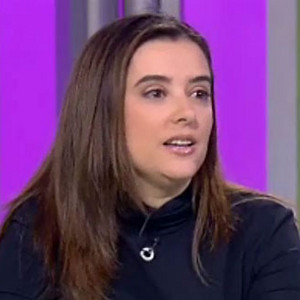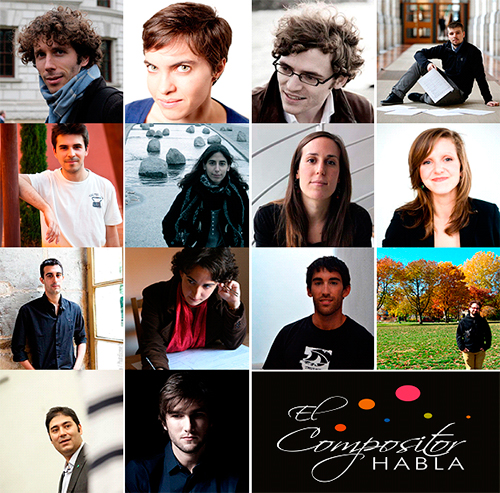Atelier de músicas
Ismael G. Cabral (Colaborador)
«Roland Kayn had a musical vision that he pursued all his life» Ilse Kayn
06/10/2020
An interview by Ismael G. Cabral for Composerspeaks.
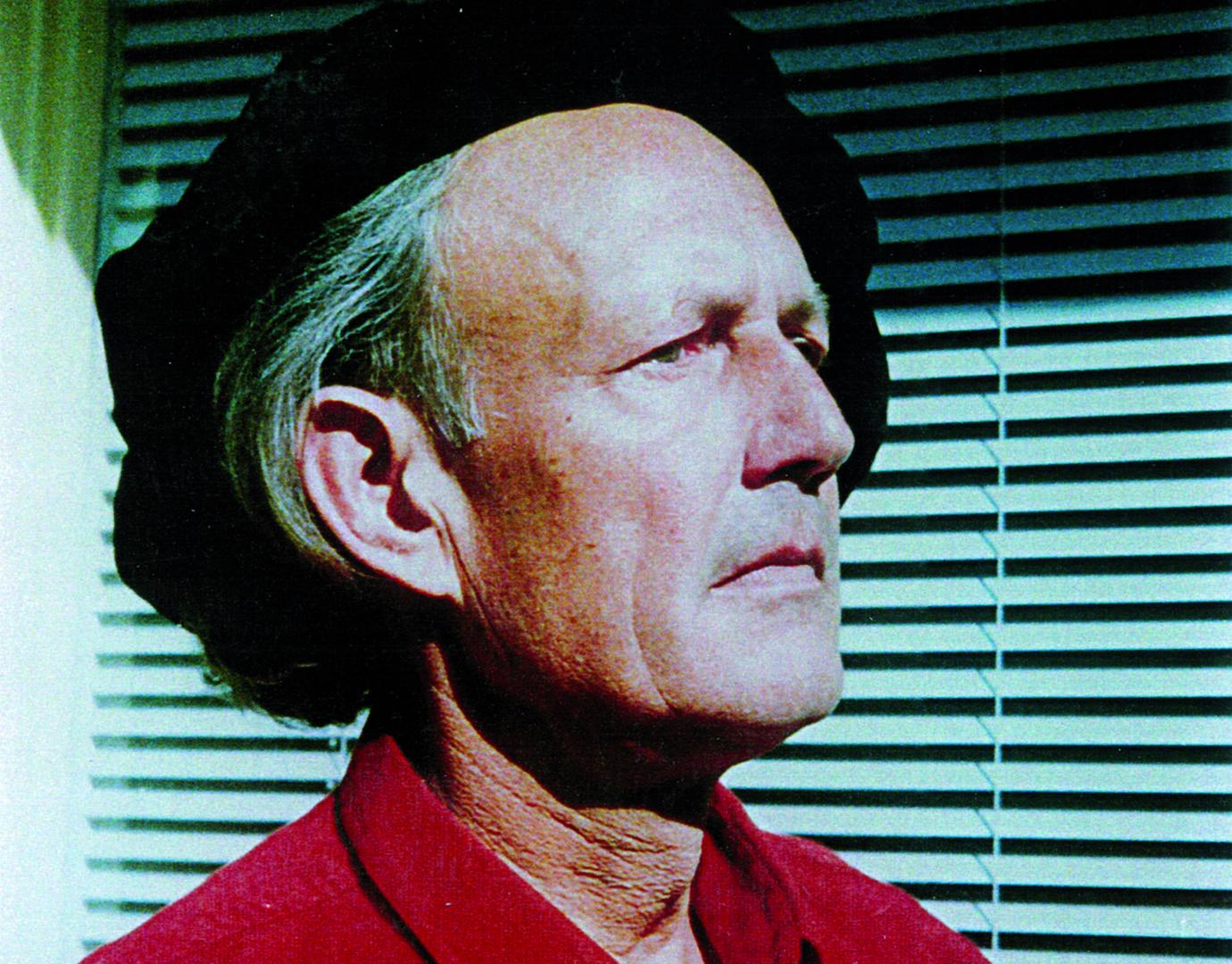
1. Ismael G. Cabral: Edition of unpublished works on CD celebrated with joy on the networks, a new website and, recently, also a very active space with news on Bandcamp. Many people seem to have finally discovered Roland Kayn and his figure grows as that of a fundamental pioneer in electroacoustic music. It seems that his father's prediction is coming true; his music belonged to the future and is that future the present?
Ilse Kayn: Yes, you could certainly say so. The interest in his music has increased enormously. It is precisely the young people who are interested, listen to it and wonder how it was made in the analogue era. The 14 hours cd release in 2017: A little Electronic Milky Way of Sound (2009) released in 2017 by the Finnish label frozen reeds has certainly contributed to this. It also helps having a platform like Bandcamp. With a push of a button the piece can be listened to in all countries at the same time. Roland would have loved that. My decision to share his work through Bandcamp came in the spring, when many people had to stay at home because of the Corona virus. I wanted to do something, add something, and give something to get through that time. This is how I opened up his archive and made it accessible internationally. It's fantastic to be able to share this with the world in this way. I get a lot of reactions, people are curious about the person behind Kayn. They even ask for a biography or a film.
Ilse Kayn: Day by day, I dedicate a great deal of time to listening to his legacy and I carefully select the works that I present in digital format. I try to make something heard from different periods of time. So far I have chosen pieces from around and hour. Something new for the Kayn connoisseurs because he is known for his long pieces. I still have long pieces in the archive, but I haven't had time to listen to them yet and I'm not sure how I want to publish them. Digital or on CD.
3. I.G.C: What place do you think Kayn occupies in the history of contemporary music or, more openly, in the musical creation of the second half of the 20th century?
Ilse Kayn: None. Roland was a free spirit, a pioneer. I don't think it can be described in a style. Roland composed Cybernetic music in which he excluded himself as much as possible. He called it music of the future. The road to it wasn't easy for him, it even resulted in him withdrawing his pieces in the 50's. Atonal and sterile music were the norm then.
4. I.G.C: He also composed instrumental pieces. Did he give it the same value as him electronic work?
Ilse Kayn: My father has written large and important instrumental works, but it is not so easy to make them heard yet. Even when you find a conductor, an orchestra and a concert hall. There are requests, but often they don't come through afterwards. The resemblance with his written and electronic work is that he was looking for freedom. He once told that it seemed so boring for musicians to have to play the same notes of Bach, Mozart or Beethoven all the time. In the score Galaxis, the musicians are given the freedom to play by means of self-determination, the notes jumping off the bar. I find that a groundbreaking thought. Unfortunately the score has had more success visually, but I'm very curious how it would sound.
Ilse Kayn: Yes, but this whole process will take time. I would like the file to be accessible to any public. There are still extensive works waiting for their moment. Little by little I will decide how they will be published. There are followers of Kay who want his music in digital format and others who would like to have the music edited on vinyl CD or cassette tape.
6. I.G.C: In the purely family sphere, did your father talk about the music he composed?
Ilse Kayn: I grew up with this music as a child. We didn't talk much about it back then. Later on I became more and more involved with his music and dedicated myself to making his work more widely known.
Ilse Kayn: He was a very interesting man of integrity. An intellectual and an autodidact. He had a vision and did all his life what he stood for. That makes him pure and real. The downside is that he didn't really participate in family life. Every year I went on vacation alone with my mother and in the evenings and weekends and holidays he was busy with his music. I wasn't used to it any other way and my mother used to say: "Your father is an artist" and with that everything was said. I have admiration for my mother, who came to terms with that anyway. He also had a sense of humor, I could laugh with him. He liked to tell stories and I always listened eagerly. He was also very precise and perfectionist man which sometimes makes it difficult to work for him. But I like to look back on it because we had a very special and strong bond and got to know my father very closely.
8. I.G.C: Did Kayn have more or less close relationships with other composers of his generation?
Ilse Kayn: Not really. He lived withdrawn and on his own. After his retirement my parents moved to a farm in East Groningen and until his death he was able to devote himself to composing.
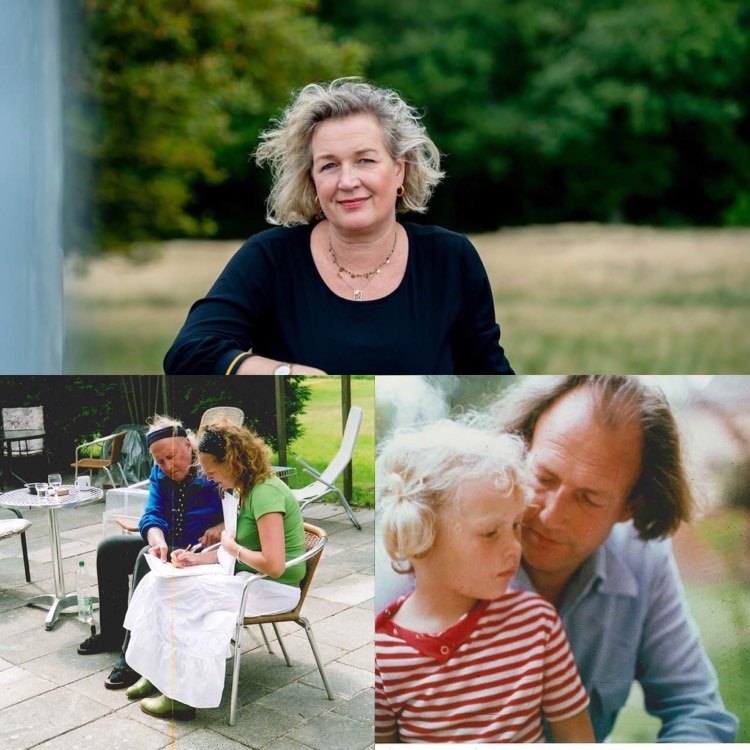
More information on the Roland Kayn Website
More information on Roland Kayn-Bandcamp
Roland Kayn's photos are in Ilse Kayn's personal archive
Ilse Kayn's photo is by Jacq Roos
© Ismael G. Cabral - September 2020
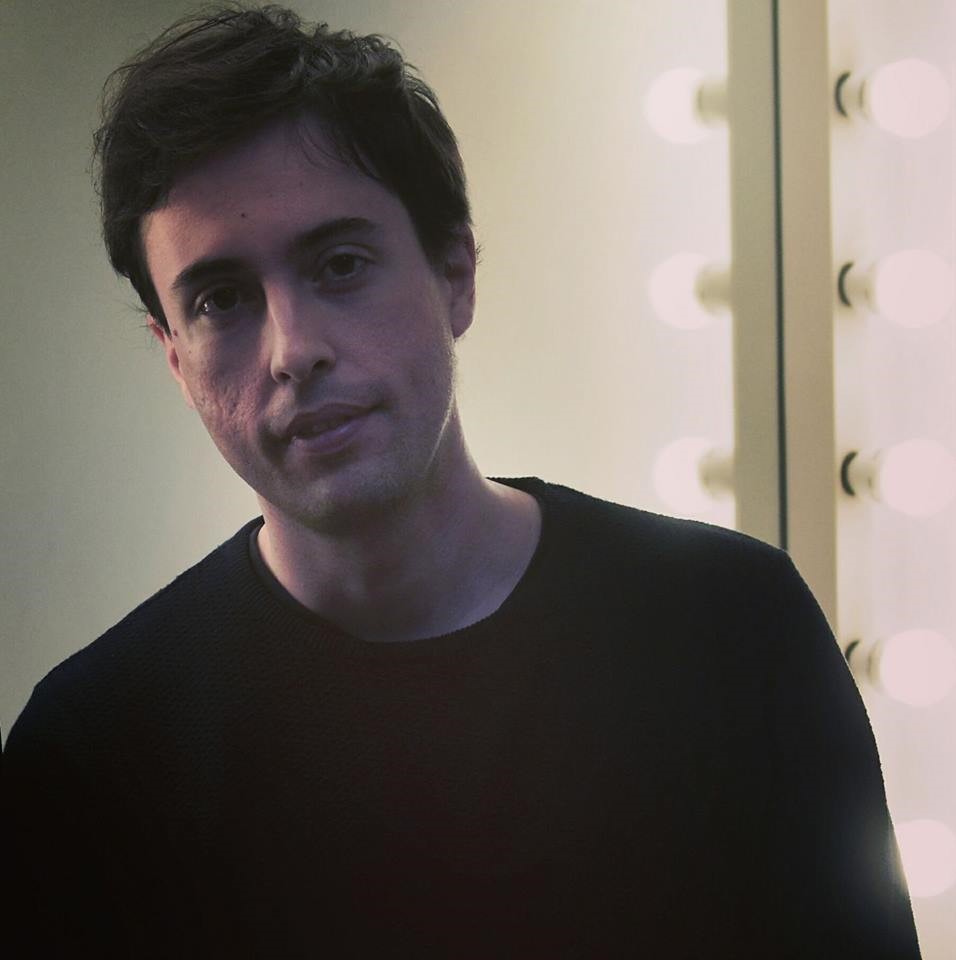 Ismael G. Cabral
Ismael G. CabralI am a (not only) cultural journalist in Seville. I spent 16 years writing 'El Correo de Andalucía' (2002-2018). I currently write about music in the magazines 'Ópera Actual', 'Scherzo', 'Sul Ponticello' and El Compositor Habla. And about animals on the 'Wamiz' portal. In the past, I have also researched radio and television. Looking for new horizons.
Biblioteca
Destacamos ...
Nueva Sección Directorio
dedicada a la promoción de compositores, intérpretes, instituciones y editoriales.

dedicada a la promoción de compositores, intérpretes, instituciones y editoriales.


